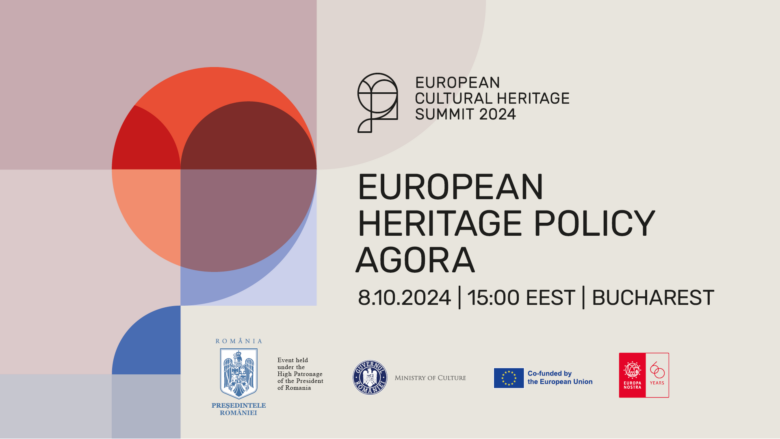ICOMOS participates in policy discussions at the 2024 European Heritage Summit
 On 8 October, the European Heritage Policy Agora was held in the frame of the European Heritage Summit 2024 in Bucharest. This event aimed to explore ways to better integrate heritage practice within European policy and discuss the concept of quality with an emphasis on challenges linked to the climate crisis. 3 ICOMOS representatives participated in the discussions.
On 8 October, the European Heritage Policy Agora was held in the frame of the European Heritage Summit 2024 in Bucharest. This event aimed to explore ways to better integrate heritage practice within European policy and discuss the concept of quality with an emphasis on challenges linked to the climate crisis. 3 ICOMOS representatives participated in the discussions.
The European Heritage Summit, organised annually by Europa Nostra, aims to provide an opportunity to promote the political, environmental, and societal value of cultural heritage for Europe. Held within the summit, this edition of the European Heritage Policy Agora gathered heritage professionals, academic researchers and policy-makers to discuss the importance of quality priorities in cultural heritage management and explore the links between flagship EU policies and key heritage conservation documents, such as the ICOMOS European Quality Principles or the Davos Baukultur Quality System.
ICOMOS Vice-President Riin Alatalu introduced the event with a keynote address emphasising the connection between community and heritage, as well as the importance of protecting people's dignity within heritage practice. She called for enhanced collaboration with decision-makers beyond the heritage sector to create effective policies and highlighted the significance of the 2019 ICOMOS European Quality Principles. Furthermore, she urged for innovative solutions to ensure that historical buildings contribute to sustainability rather than becoming environmental burdens.
The first panel, titled ‘EU Policy and Cultural Heritage Practice at a Crossroads,’ was moderated by Ondina Tâut, Romanian Focal Point for the ICOMOS European Quality Principles. It was then followed by a second panel, ‘The Road Ahead: Towards More Resilient Heritage Ecosystems,’ during which Franziska Haas, President of the ICOMOS International Scientific Committee on Energy and Sustainability (ISCES), discussed the evolution of heritage policies in response to climate change in Germany. She stressed the need for early involvement of heritage authorities in planning processes to integrate climate resilience measures and to counter the perception that heritage preservation hinders climate action. She also highlighted ICOMOS’ role in bridging global discussions with local implementation by providing a knowledge hub, sharing best practices, and facilitating collaboration among various stakeholders to ensure that heritage conservation aligns with sustainable development goals.
The key outcome of the European Heritage Policy Agora is the publication of the Bucharest Manifesto which aims to encourage all stakeholders to prioritise quality within cultural heritage policy and practice.
Photo credits: Europa Nostra
See more


